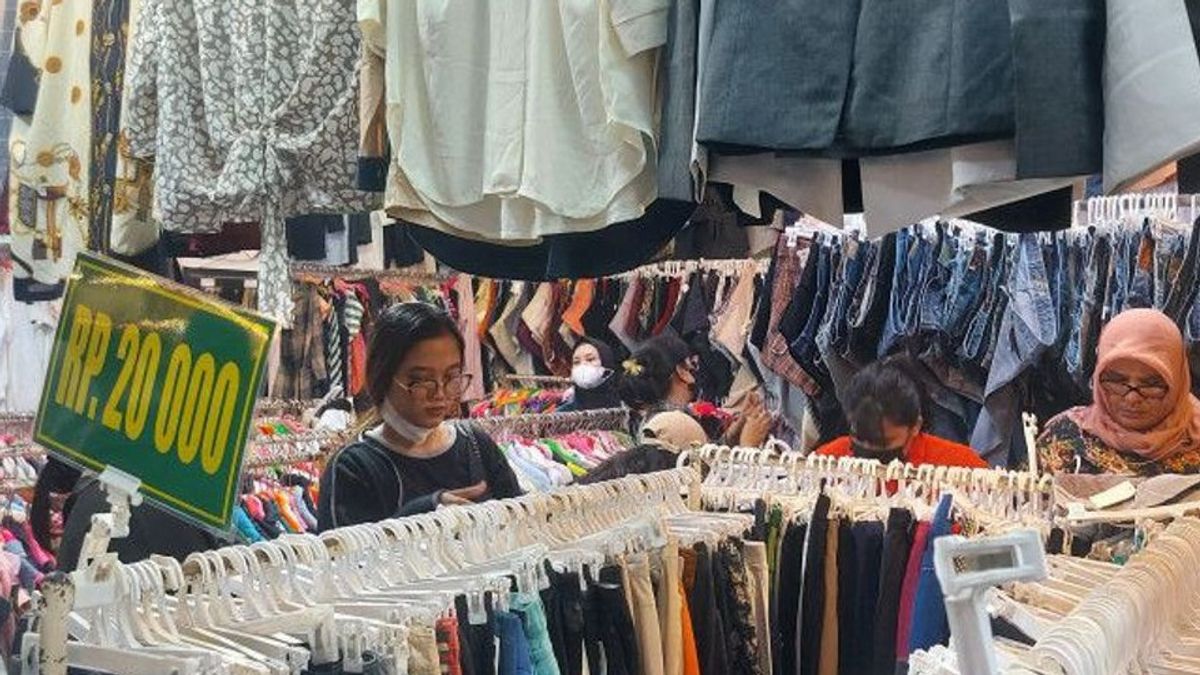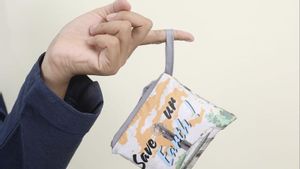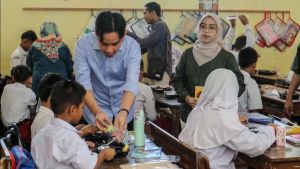JAKARTA The interest of the Indonesian people in imported clothing is still quite high. Look at a number of places such as Pasar Senen in Jakarta or Cimol Gedebage Market in Bandung. Although not as crowded as in 2019, the two markets, which became the storefront for imported clothing, were never empty of visitors.
Based on data from the Central Statistics Agency (BPS), imported used clothing in Indonesia has indeed increased since 2017 and reached its peak in 2019 to 392 tons.
Had dropped dramatically during the pandemic, but the import volume of used clothes increased again throughout 2022 to 26.22 tons. However, according to the Director of the Center of Economic and Law Studies (Celios) Bhima Yudhistira, the reality on the ground could be more than that.
As in 2021, BPS data is only 8 tons, but when referring to the Trade Map website as reported by Kompas, export data on used clothing recorded by exporters reached 27,420 tons.
Japan, Australia, Malaysia, Singapore, Hong Kong, Nigeria, China, India are listed as a country that supplies used clothing to Indonesia.
"Indeed, during the pandemic era, sales have shifted to online. In the last 3 years, if there were rowing on social media, for example, there were live sales," Bhima told VOI on March 15, 2023.
There are a number of reasons why Indonesians are interested in buying imported clothes. First of coursebranded, both prices are affordable.
The price can be 4 times cheaper than buying new clothes. In terms of quality, although not all are good, the consumer's smartness is to sort. But the average imported goods that pass the sorting andbranded are indeed much cheaper than clothing products to be local," he added.
Even so, the volume of imported used clothing that tends to increase has hit the domestic clothing industry. A total of 432 thousand tons or 22.73 percent of the total consumption of clothing and finished goods in the national local industry has been shifted according to data from the Filament Filament and Benang Producers Association (Apsyfi).
Bhima also estimates that 50 percent of the gross domestic product value of the clothing industry is IDR 201.6 trillion per year in danger of the existence of imported clothing.
In the end, a number of Micro, Small and Medium Enterprises (MSMEs) also swerved, participating in selling imported clothing products because the margin was greater and cost-effective for the workforce.
"MSMEs that resell used goods as resellers actually becomesets with other MSMEs in the finished clothing production sector," said Bhima.
Overcoming this, the government must be firm. The prohibition regarding imports of used clothes has actually been clearly stated in the Regulation of the Minister of Trade (Permendag) No. 40 of 2022 concerning Amendments to Permendag No. 18 of 2021 concerning Prohibited Exports and Prohibited Imports.
Article 2 paragraph 3 states that goods that are prohibited from importing include used bags, used sacks, and used clothes.
Unfortunately, said Bhima, it seems half-hearted. There are regulations prohibiting but the fact is that those circulating in online stores are also not subject to sanctions. What is needed now is not a symbolic action by confiscation or burning used imported clothes, but rather to enforcement in the field and sanctions for importers.
"During half-hearted enforcement, used clothes will still have many enthusiasts," said Bhima.
In addition to enforcement, the central and local governments also have the task of improving the quality of clothing to be local. Production and marketing assistance must be more serious.
"If the total ban is accompanied by improving the quality of local products, it is possible for clothing business actors to return to become the business sector that investors are looking at," Bhima continued.
On the other hand, said Minister of Cooperatives and SMEs Teten Masduki as reported by VOI, consumers also need to be educated that buying and selling imported used clothes has more harm. It is not appropriate to use used imported clothes as a way to protect the environment.
Indeed, there are creations from the textile and garment industry that use the remaining ingredients or clothes to be processed again into finished clothes. However, it is a domestic product, not imported used clothing.
"So, apart from potentially turning off the MSME business, it triggers the loss of potential workforce, imports of used clothes are also not in line with the spirit of the Proudly Made in Indonesia movement," Teten told the media crew on March 13, 2023.
The English, Chinese, Japanese, Arabic, and French versions are automatically generated by the AI. So there may still be inaccuracies in translating, please always see Indonesian as our main language. (system supported by DigitalSiber.id)










